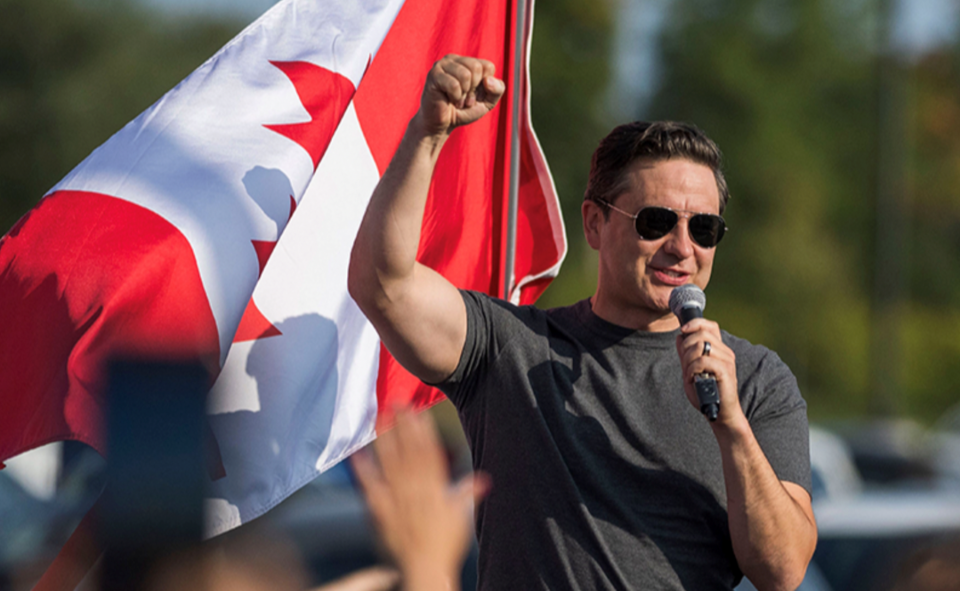I was a junior journalist in Ottawa when Pierre Trudeau went for his famous 1984 walk in the snow. The prime minister had taken his sons to judo class, put them to bed, gone for a lengthy trek in the worst storm of the year, followed up with a sauna, then slept on his decision. I recall his buoyance as he told reporters he was at last done after 16 years, that he had listened to his heart. He even uttered the cliché of it being “the first day of the rest of my life.” lt was as if a dark spirit were leaving his body.
His son Justin now is considered a prime candidate to take his version of that walk—perhaps on the beach, maybe in the woods—in that it is apparent he, too, is at last done. Dark spirits abound, and with all this animus directed his way, he must want to shed them. He doesn’t seem yet to be listening to his heart, though.
Pretty much everyone thought it was a stretch to think of Monday’s by-election in Toronto-St. Paul’s as a referendum on Trudeau. After all, it had been one of those so-called “safe” ridings for the Liberals, theirs since 1993. But in losing the seat to the Conservatives, a party without victory expectations in that contest, it is not only a referendum but an indictment—and, if today’s polls are even mildly trustworthy, the appetizer of the full meal-deal ahead in next year’s federal election.
The prime minister says he hears the concerns and frustrations of the voters. He is also notoriously stubborn. His deputy says he needs to stay. He thinks he’s still the best foe for the Conservatives. Polls suggest any of the likely successors atop the Liberal party will meet the same landslide fate. Not even Connor McDavid could win.
Why he would want to stay, why he would not want to retire undefeated, why he would give Pierre Poilievre the scrumptious pleasure of trouncing him, is something even his competitive father with his Jesuit-trained intellectual framework would likely question. But, as of this moment, this stoicism is the silly place we are.
Out here in British Columbia, there is some common ground to be found with the troubled Trudeau Liberals involving the party that used to be called the BC Liberals. Kevin Falcon, considered only two years ago destined to take down the NDP later this fall, may not even make it to October 19.
His rebranded BC United party is the province’s official Opposition, but public opinion could not be much more painful and disrespectful of its status and history. Polls suggest it may not win more than one or two seats. The economy is weak and the mood for change is strong—an optimal environment if there ever were one—but disgruntled voters are migrating in near-entirety to the BC Conservatives, whose leader John Rustad was turfed by Falcon from BC United in 2022. In hindsight, it has proved to be the wrong turn on the road, but not the only one.
There remain a dozen MLAs on Falcon’s team. BC United has lost four now to the Conservatives, and more may be ahead if they want to save their jobs—although the longer they wait, the more nominees the Conservatives will already have.
Falcon is adamant he won’t step down. He, too, is far from his heart and into his head with an intractability in common with the prime minister, but there are senior members of his party who believe it would be in his and its best interests to leave.
Unlike the federal Liberals, who want a saviour for the next year, the BC United members calling (confidentially and anonymously, of course) for Falcon to step aside merely want a caretaker for the next months. They want this selfless volunteer to help them weather the October 19 storm—they are sanguine it is coming—and work with whatever remains to set out a rebuild.
There aren’t many elected leaders who don’t make it to their first election. Joe Clark, in his second stint as Progressive Conservative leader, was driven out in 2003 in advance of a merger with the Canadian Alliance. Then again, he’d already been prime minister years earlier.
I heard one senior BC United supporter, a part of his leadership campaign, say Falcon needs to do this if he wants a post-political private-sector career—more evidence, if anyone needs it, that politics isn’t pretty.
Many, like former BC Liberal Premier Christy Clark, want an agreement with the Conservatives to topple the NDP, but it appears too late for that to have the desired effect. Besides, BC United remains locked in hubris mode and cannot accept they’re suddenly second-billing in any possible partnership. A poll I’ve seen suggests a Conservative-led merger would lead the NDP by a half-dozen points; a BC United-led merger would trail by 20.
At this stage, any legitimate chance for victory appears to be in Rustad’s hands alone. It appears a tall order, but his party has risen nearly 30 points in a year, and at times this sort of momentum just doesn’t stop. Just ask Falcon. Just ask Trudeau.
Kirk LaPointe is a Glacier Media columnist with an extensive background in journalism



